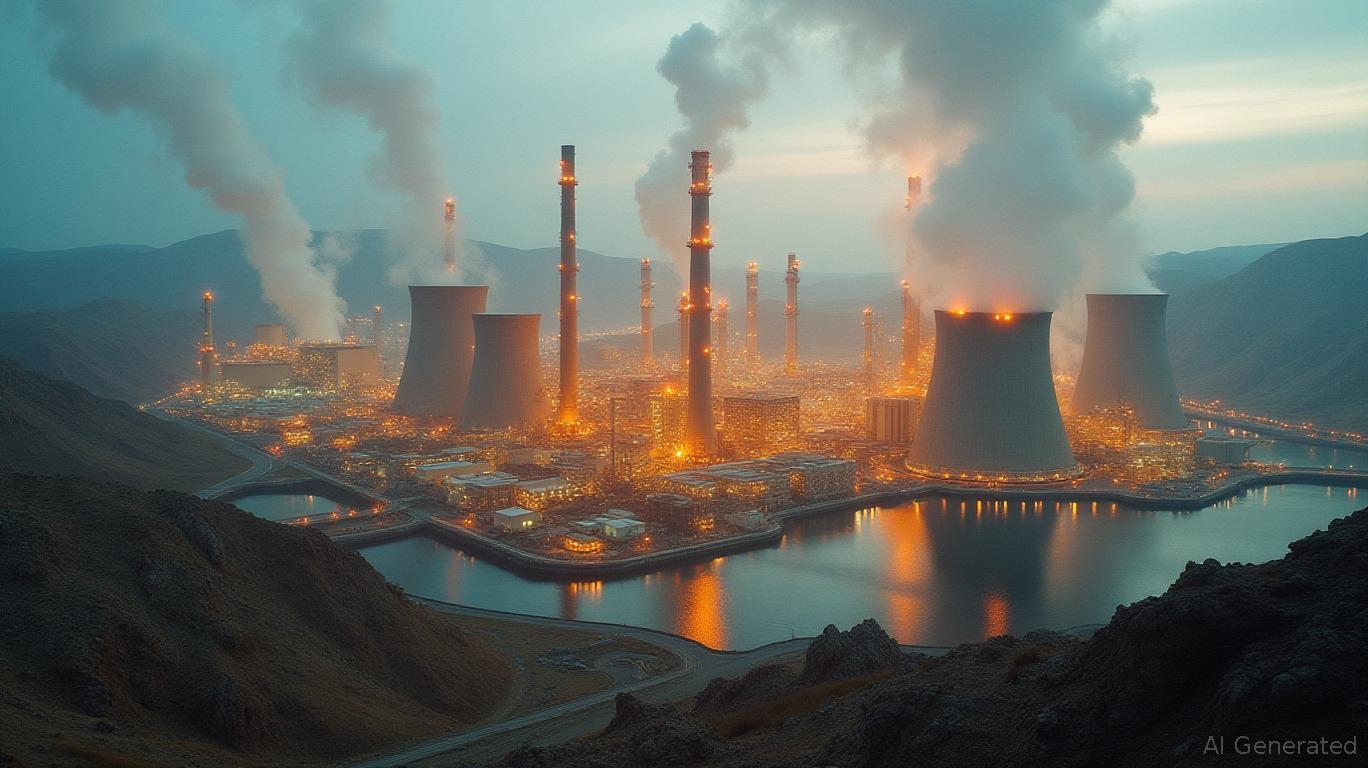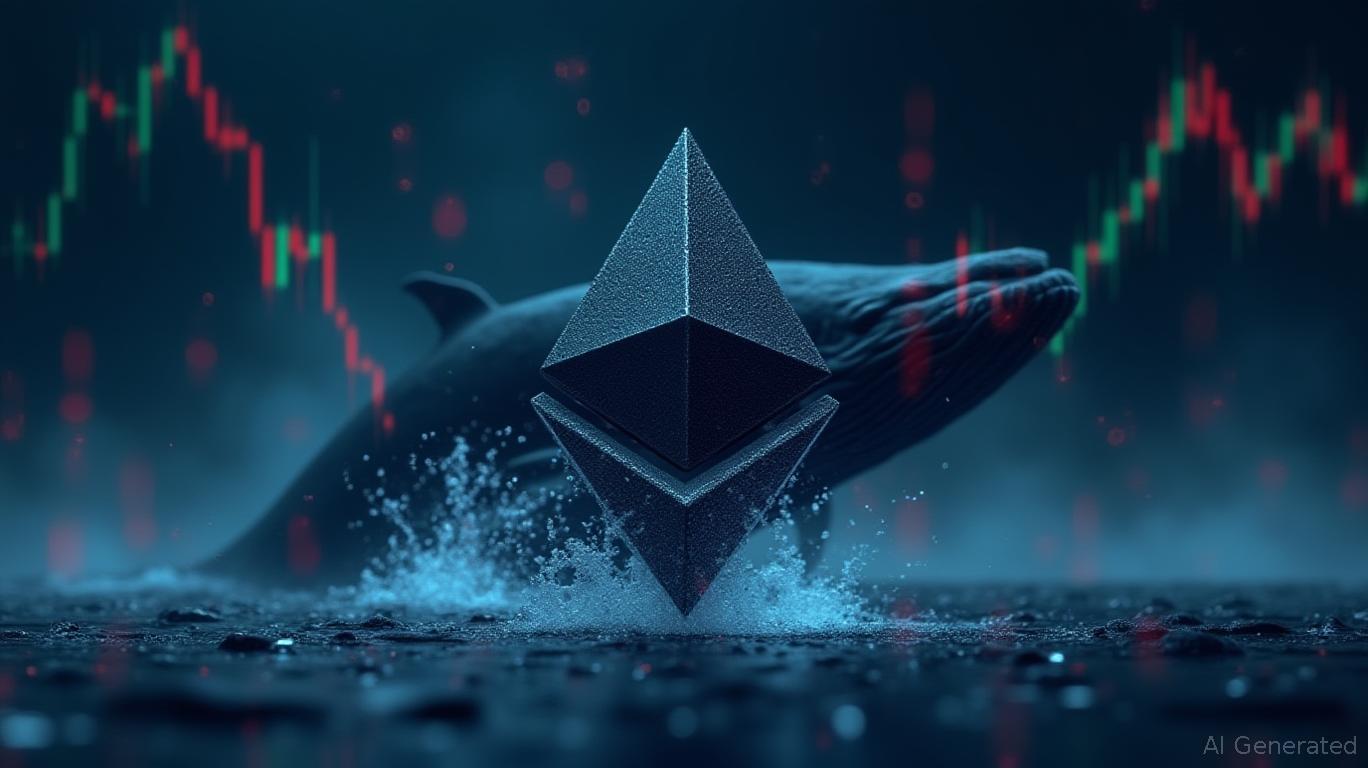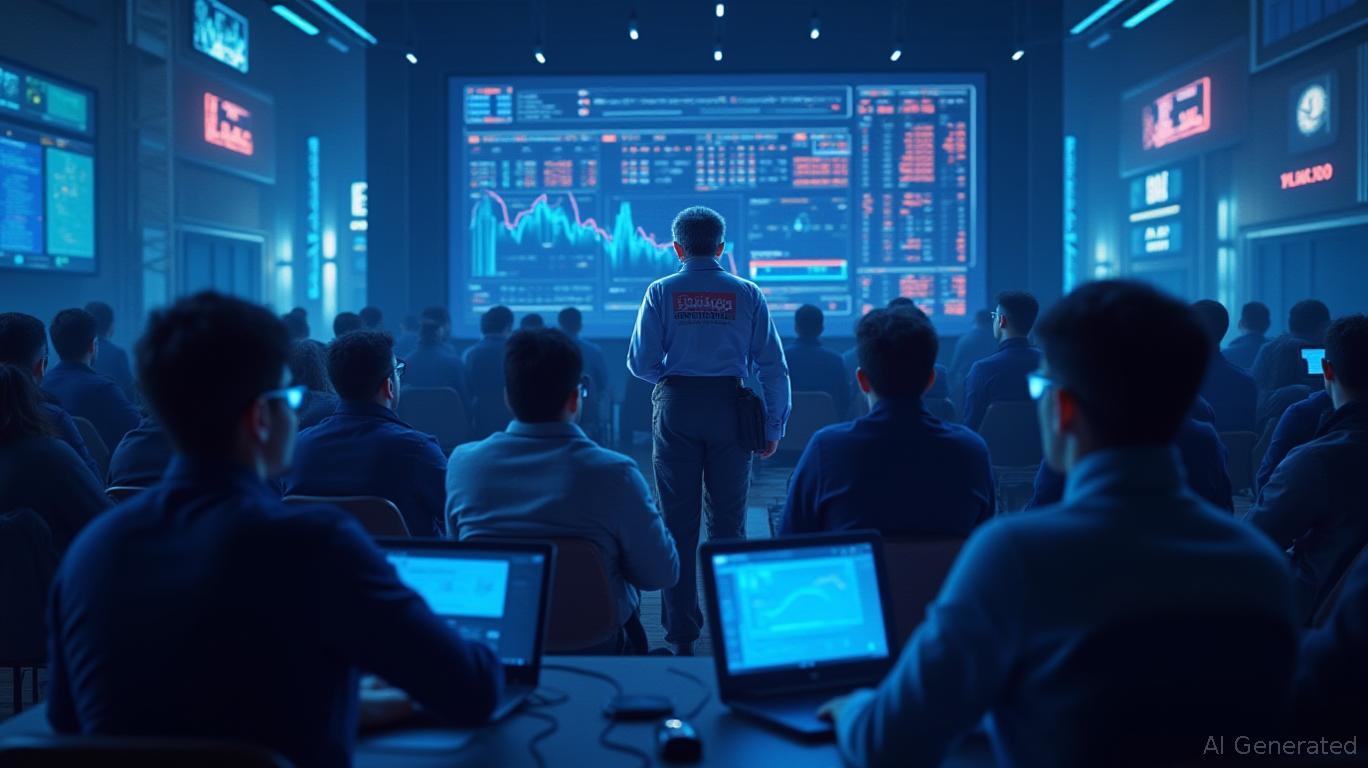Uranium Suppliers Strengthen Energy Stability During Worldwide Unrest
- enCore Energy and Verdera Energy advance uranium production plans to strengthen U.S. energy security amid global tensions. - enCore focuses on in-situ recovery (ISR) technology for sustainable uranium extraction at key U.S. sites like Alta Mesa and Dewey-Burdock. - Verdera secures $20M financing and completes a go-public transaction with POCML 7 Inc., though regulatory and market risks remain. - Both companies aim to reduce reliance on foreign uranium supplies by scaling domestic production amid rising n
The uranium sector is experiencing a resurgence as
enCore Energy, which prioritizes environmentally friendly nuclear fuel, manages several significant uranium operations throughout the United States, such as Alta Mesa, Dewey-Burdock, and Gas Hills. The company’s adoption of ISR—a process that extracts uranium from underground without traditional mining, thereby reducing environmental disruption—supports its pledge to sustainable energy, as mentioned in an

At the same time, Verdera Energy’s public listing with POCML 7 Inc. marks a key milestone in its expansion plans. This arrangement, which still requires approval from the TSX Venture Exchange (TSXV) and other regulatory steps, is designed to provide the capital needed to further develop its uranium assets in the U.S. The $20 million, raised through a brokered deal, will go toward exploration and project advancement. Nevertheless, investors should be aware that the outcome of the transaction is uncertain, and there is no assurance it will proceed as intended. The TSXV has not reviewed the deal’s merits, and the securities in question are not registered under U.S. law, restricting their sale to investors outside the United States.
The actions taken by both companies mirror a larger movement within the uranium market, where interest in nuclear power as a clean energy source is growing. enCore’s focus on U.S. production and Verdera’s fundraising efforts highlight the industry’s drive to decrease dependence on uranium imports, especially from regions with political instability. However, the sector faces significant obstacles. Verdera’s deal depends on regulatory clearance and market factors, while enCore must address the technical and environmental challenges of uranium mining.
These recent events also emphasize the importance of capital pool companies in helping new entrants access the uranium market. POCML 7 Inc., functioning as a shell entity, is facilitating Verdera’s move to go public—a common tactic in resource industries to avoid the complexities of a conventional IPO. Still, such deals are speculative by nature and come with risks related to possible delays and market fluctuations.
As the United States works to strengthen its energy systems, the uranium sector’s success in attracting investment and increasing production will be essential. For enCore and Verdera, the upcoming months will be crucial as they face regulatory, financial, and geopolitical challenges, as referenced in the enCore Energy brief.
Disclaimer: The content of this article solely reflects the author's opinion and does not represent the platform in any capacity. This article is not intended to serve as a reference for making investment decisions.
You may also like
Democratizing Blockchain Profits: Mevolaxy’s Application Facilitates $3.6 Million in Distributions
- Mevolaxy, a U.S. mevstake platform, launched a mobile app and reported $3.6M in Q3 payouts, surpassing its previous record. - Its Mevstake system democratizes MEV strategies by pooling liquidity, offering fee-free staking with reduced market risk through locked terms. - The app emphasizes real-time tracking and user-friendly design, aligning with the platform's mission to make blockchain earnings accessible to all users. - Backed by experienced blockchain engineers and DeFi specialists, Mevolaxy's growth

Ethereum Updates Today: Large Holders Increase Holdings, Offsetting Ethereum's $3,400 Liquidation Risk
- Ethereum faces $3,400 liquidation risks amid $3,600 breakout threats, with $807M short and $564M long liquidations at key levels. - Institutional accumulation (82,000 ETH by BitMine) and whale treasury holdings counter short-term weakness, while U.S. outflows contrast Asian inflows. - Layer-2 platforms maintain $20B TVL despite price declines, and projects like Remittix secure $27.8M to capitalize on market recovery. - Analysts project $4,000-$4,500 medium-term recovery if macroeconomic clarity and stabl

Community First, Not Investors: UnifAI's Tokenomics Redefine DeFi Standards
- UnifAI introduces a tokenomics model allocating 13.33% to community/ecosystem, challenging DeFi norms prioritizing investors. - This contrasts traditional models, emphasizing decentralized governance and user-driven growth through staking, voting, and revenue sharing. - 7% liquidity allocation and 20.75% foundation funds ensure stability, while 15% team incentives align long-term success with stakeholders. - Analysts highlight the 13.33% community focus as a strategic differentiator, mirroring institutio

Ethereum News Update: ISO 20022 Connects Blockchain with Banking Sector, Unlocking $100 Trillion Market
- UBS and Chainlink executed first onchain tokenized fund redemption using ISO 20022 standards, bridging blockchain and traditional finance. - The pilot with Swift enabled standardized subscriptions/redemptions, streamlining RWA settlements without custom integrations. - Tokenized U.S. Treasuries now value $8.6B, with institutions like BlackRock and Deribit adopting them as collateral despite liquidity challenges. - Ethereum dominates 75% of tokenized RWAs and 60% of stablecoins, with Standard Chartered pr
